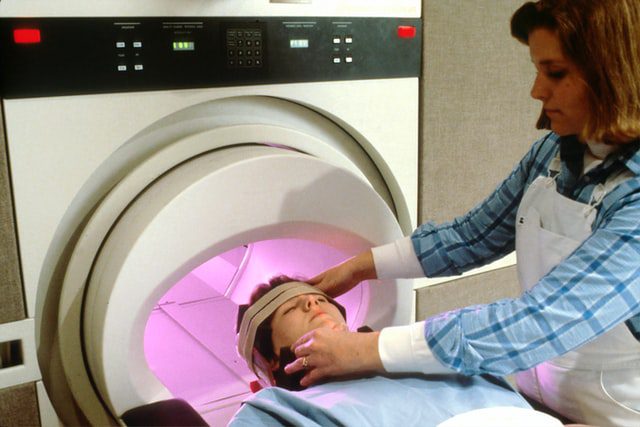Overview Of Low Back Pain And MRI
Back pain and sciatica are common health complaints. Almost everyone has back pain at some time in their life. Most of the time, the exact cause of the pain can’t be found. An MRI scan is an imaging test that creates detailed pictures of the soft tissue around the spine. An MRI can help to determine the cause of your low back pain.
DANGER SIGNS AND BACK PAIN
Both you and your doctor may be worried that something serious is causing your low back pain. Could your pain be caused by cancer or an infection in your spine? How does your doctor know for sure?
You will likely need an MRI right away if you have warning signs of a more serious cause of low back pain:
- Cannot pass urine or stools
- Cannot control your urine or stools
- Difficulty with walking and balance
- Back pain that is severe in children
- Fever
- History of cancer
- Other signs or symptoms of cancer
- Recent serious fall or injury
- Back pain that is very severe, and not even pain pills from your doctor help
- One leg feels numb or weak and it is getting worse
- If you have low back pain but none of the warning signs just mentioned, having an MRI won’t lead to better treatment, better pain relief, or a quicker return to activities.
You and your doctor may want to wait before having an MRI for low back pain. If the pain does not get better or becomes worse, your doctor will likely order one.
Keep in mind that:
- Most of the time, back and neck pain are not caused by a serious medical problem or injury.
- Low back or neck pain often gets better on its own.
An MRI scan creates detailed pictures of your spine. It can pick up most injuries that you have had in your spine or changes that happen with aging. Even small problems or changes that are not the cause of your current back pain are picked up with an MRI. These findings rarely change how your doctor first treats you.
But they can lead to:
- Your doctor ordering more tests that you may not really need
- Your worrying about your health and your back even more. If these worries cause you not to exercise, this may can cause your back to take longer to heal
- Treatment that you don’t need, especially for changes that occur naturally as you age
RISKS ASSOCIATED WITH AN MRI SCAN FOR LOW BACK PAIN
In rare cases, the contrast (dye) used with MRI scans can cause severe allergic reactions or damage to your kidneys.
The strong magnetic fields created during an MRI can cause heart pacemakers and other implants not to work as well. Newer pacemakers can be MRI compatible. Check with your cardiologist, and tell the MRI technologist that your pacemaker is MRI compatible.
An MRI scan can also cause a piece of metal inside your body to move. Before having an MRI, tell the technologist about any metal objects that you have in your body.
Pregnant women should not have MRI scans.



